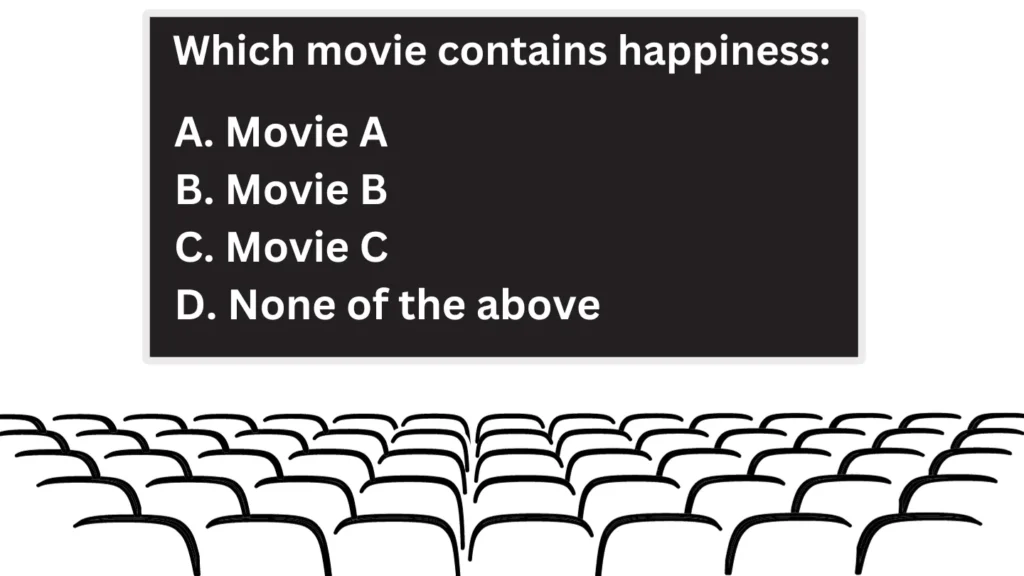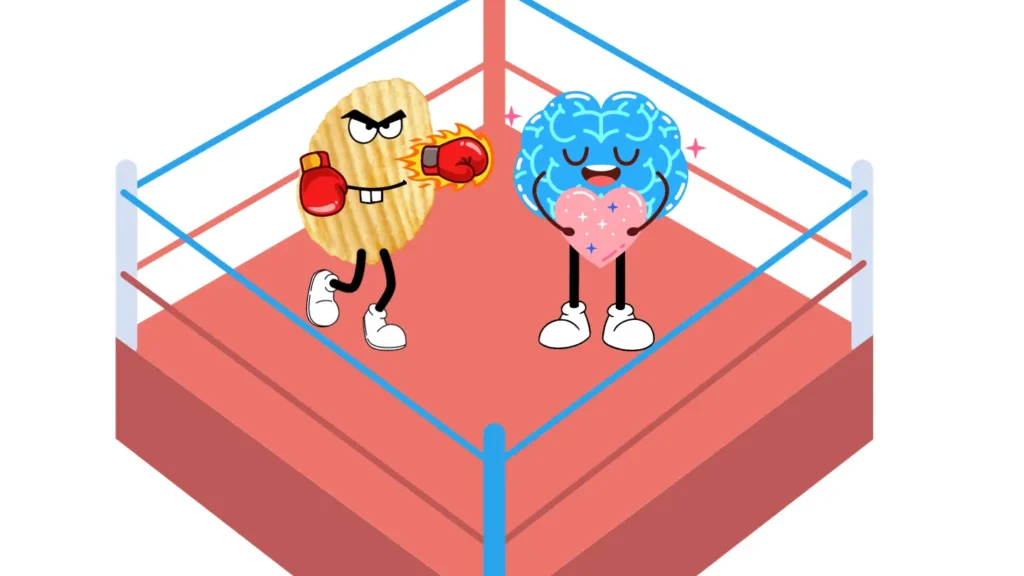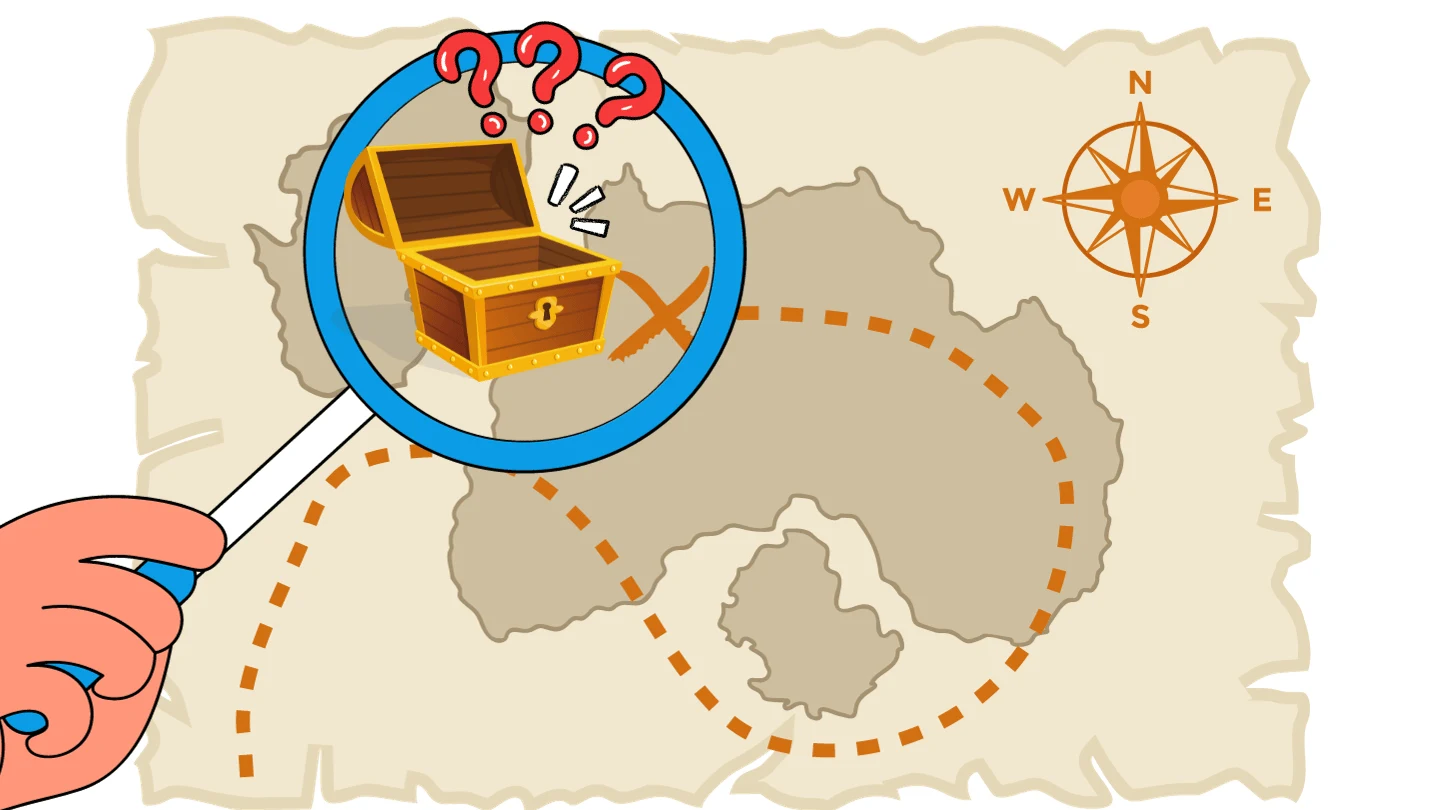Why You Hopelessly Keep Seeking Happiness Outside Yourself
We always believe that people can make us happy, especially when they behave in the way that we want. We always believe that we can just be a little bit happier when we get the things we want. The same applies to circumstances we find ourselves in when they shape according to our expectations. And when they exceed our expectations, we are all the happier for it.
We can be happy when we have all the things we need, but somehow we always want more than what we need.
What we need is a safe and clean place to stay. What we need is to provide care and nourishment for our bodies. We might need some additional things to communicate, move ourselves from A to B, fulfill our responsibilities, and live in this society reasonably comfortably.
But how many things do you have at home that you truly need? How many things do you consume on a daily basis—whether that’s through your mouth or your eyes, ears, nose, body, and mind—do you actually need?
Take a look at your decoration, your appliances, and your furniture. Open your food cabinet or fridge and peek inside. Examine all the various shapes and colors around you. How many of them are necessary for your survival? How about the people in your life? Does it feel impossible to continue living your life if, one day, someone departs from you?
We can’t help ourselves from feeling how all these people and things in our lives seem to be the key to our happiness. But, as we’ve discussed in-depth, it is impossible for happiness to come from the outside. So, why do we feel this way then?
Let’s take another step closer towards unconditional happiness by exploring this pertinent question so that we don’t have to keep seeking happiness outside of ourselves any longer.
Seeking happiness consciously and unconsciously
In the previous article, Is Your Happiness a Leaky Glass? We discussed how we truly perceive happiness.
The moment we perceive happiness to come in through the outside, we search for it both consciously and unconsciously, leaving us in a state of incompleteness, discontent, or dissatisfaction. This continues until we find what we perceive as a source of happiness, bringing relief from our dissatisfaction or vexation, resulting in a sense of joy or pleasure. The more vexed we are, the stronger the joy when alleviated from this vexation.
Discussing unconditional happiness requires thoughtful consideration rather than acceptance or rejection. Unconditional happiness is an internal realization of how the mind, and the world around it, operate.
Simply agreeing with a statement, whether from me or someone else, doesn’t contribute to this realization. However, examining a statement or concept, and verifying it through personal experiences, internalizes it. Through this internalization, your mind starts perceiving the outside world through a different perspective.
Similarly, dismissing something without objective inspection, because it doesn’t align with your current beliefs, might cause you to overlook potential benefits. If the beliefs you currently hold are indeed true, then you should be able to disprove the presented concept.
The challenge here is that any party that is attached to their views cannot view things 100% objectively. So it takes an honest and critical self-reflection to examine whether one is truly objective.
A cinematic masterpiece
If you are honestly interested in being unconditionally happy (which, deep down, includes all of us), there is one movie that you must absolutely see. This vastly underrated cinematic masterpiece is unlike anything you’ve ever come across, completely transcending any other movie in its genre and offering profound insights into the human experience. Its captivating storytelling and thought-provoking themes have left audiences in awe and contemplation. Don’t miss the opportunity to be moved, inspired, and to discover a new perspective on the pursuit of true happiness.
I’m not sure if I’ve succeeded in conveying the above teaser accurately, but we’re about to find out.
If at any point this teaser piqued your interest, that means that now you don’t feel satisfied until you go and see it. The stronger the feeling, the more you wish to see it. You were content before I shared it with you but, after reading, your level of contentment changed (unless of course your interest wasn’t sparked at all).
If it really got you interested, now you’re waiting for me to reveal the name of the movie. Perhaps you’re even scanning the text below to find out. In fact, until you actually see the movie, you’re not going to be satisfied. Even if the description didn’t grab your attention, you might still be curious about the movie’s name.
Now, let me first apologize for dragging you into this little experiment; the movie I’m referring to does not exist. I was trying to show how easily we can be put in a state of vexation, no matter how minor that seems.
But that’s not all…
When vexation arises, our instinct is to seek relief. We either want to find an answer (discover the movie’s name) or go watch the movie. When we get what we want we feel joyful.
Don’t you find that at least somewhat ironic?
Were you not fine just before you read the teaser? Then how does going to watch a movie, one you didn’t even know existed, can suddenly make you happy? Yet, that’s exactly what we feel when we go and watch a movie.
How often have you come across a movie trailer or teaser that sparked your interest and made you want to watch it? It might have been online, through a friend’s recommendation, or even in the cinema before a movie you, funnily enough, also wanted to see because of its trailer.
Now, picture yourself in the cinema lobby with a list of movies on the screen. Would you be content with just any of them, or do you have a preference?
Naturally, you’d likely have a preference. This suggests that watching a random movie isn’t enough to make you happy. Movies, by themselves, are inherently incapable of generating happiness. However, when you choose to watch a movie you like, doesn’t it bring you a sense of satisfaction?
Imagine you’re at the cinema with a friend. You want to watch Movie A, but your friend prefers Movie B, which happens to be a genre you dislike. In an attempt to compromise, you both consider Movie C, though it’s not your top choice.
What’s the real issue here?
Essentially, you’re expressing that you wouldn’t feel fully content watching Movie C, and Movie B would be unsatisfying.

Unfortunately, Movie A can’t contain happiness because external things can’t provide happiness. If it could, it should make your friend happy too, but in reality, it would make them miserable.
However, Movie A also can’t bring misery because it’s not within the projector, screen, or frames.
What about Movie B? It’s the same—neither containing happiness nor unhappiness. Movie C is no different.
How would you feel about Movie A if you didn’t want to see it? Would you still feel the same?
Obviously not.
But because you really want to see it, you are not content. You’re vexing. What happens to that vexation when you watch movie A? Let’s simplify it by assuming the movie meets your typical expectations. Now, your vexation is relieved.
How does that feel?
Great, doesn’t it? That’s what you perceive as happiness.
You can’t help yourself from feeling that the movie contributed to that joyful feeling. The joy arose because your vexation was alleviated during the time you watched the movie. Because they happen at the same time, the mind perceives the external event as a source of joy.
The irony is that you wouldn’t have felt vexed in the first place if you didn’t want to watch that movie.
Movie A doesn’t have the same effect on your friend, because they don’t want to see movie A. It can therefore not suppress their vexation. However, their vexation would be relieved by movie B. And because they’ll feel better when that happens, they’ll attribute that good feeling to Movie B instead.
Potato chips vs. The mind
You’re in your favorite comfy seat, ready to watch something on Netflix or another video platform. As you sink into your seat and get lost in your video, a thought suddenly crosses your mind.
“How about some potato chips?
I probably shouldn’t. I already had dinner, and they’re not that healthy.
But they do taste great, don’t they?
What’s the harm in having a few chips?”

Ever had this kind of internal dialogue? No worries—it’s entirely normal, and you’re not alone in experiencing it. Instead of ignoring it, let’s take a moment to use it as an opportunity to understand what’s truly going on.
Although we’re not going into this in this article, have you ever wondered why that thought arose in the first place? Did it arise “out of the blue”? And why do you feel so identified with it? It’s not like you invited it to come. It just came. We will discuss this topic as well in future articles.
Anyway, as soon as that thought arose, how did you feel?
Did it feel good to want those chips but not have them?
If that thought keeps coming back, it will gain more and more momentum and the desire to eat those chips will intensify. That’s not a good feeling. It makes you feel restless and distracted. You know this to be true. The next time a situation like this arises, take a moment to observe it.
The stronger that wanting becomes, the more inclined you are to get the chips. Another way of saying this is that the stronger the vexation becomes, the sooner you need to take action to relieve yourself of that vexation.
So, you eventually head to the pantry, grab a bag of potato chips, and settle down in your comfy seat once again. As you indulge in those chips, the flavors and saltiness tantalize your taste buds and nerves, while the crunchiness sends a soothing vibration throughout your brain. Honestly, don’t you feel more relaxed now?
But why?
Can those potato chips evoke the same feeling in everyone?
Clearly not, as some people dislike potato chips.
Yet, even if we narrow our focus to just you, it’s apparent that you don’t consistently feel the same way every time you eat potato chips. Yet, this time around, you feel particularly pleasurable while munching on them.
Now, consider this: would you feel just as good if you did not want to eat them in the first place? For instance, if you were in the mood for something sweet, could potato chips satisfy that craving?
No, right?
So potato chips don’t have any special power to make you or others feel a certain way (aside from, perhaps, affecting your blood pressure, which is a physical matter).
However, something changes when you consume those chips this time. You experience an improved mood. If you were in the mood for chocolate, this sense of satisfaction wouldn’t emerge. You’d still be craving chocolate and, consequently, wouldn’t feel content.
In simpler terms, because you desired the chips now, you felt dissatisfied and vexed. Yet, the moment you started eating those chips, that unpleasant feeling dissipated, and now you feel relaxed. Essentially, all you did was alleviate yourself of that unpleasantness.
And because that change happens the moment you eat those chips, you can’t help but feel it’s the chips that make you feel good.
The object of your vexation is what you ironically perceive to be your source of joy.
If you were craving chocolate, you would be unsatisfied until you’d get to eat some chocolate. As soon as you do, you are being relieved of that vexing desire and you feel great. Again, you can’t help but attribute that pleasantness to the object you were vexing for.
No wanting = No pleasure
This principle can be applied to any aspect of life. Since everyone has a diversity of interests and preferences, it would be impossible to provide examples that are relatable to each person and every person. That’s why it’s essential to relate it to your own life.
What things do you enjoy?
Are those things enjoyable by themselves, or is the joy something you can experience only when you want them first?
Joy doesn’t arise without some form of wanting or desire—conscious or subconscious—preceding that joy. You won’t enjoy time with a friend unless you want to spend time with them. Relaxing on the sofa won’t bring joy if it’s not something you want. Similarly, enjoying a hot bath is unlikely if you feel the desire to go out and do something active.
However, each time, the moment you desire any of those things, you only feel fulfilled once you obtain them. The unsatisfactory feeling you had just before is now relieved, and you mistakenly attribute your happiness to the desired object or circumstances. This feeling automatically surfaces; it’s beyond your control.
Your mind perceives happiness to be an intrinsic part of whatever you desire. Consequently, it always produces thoughts indicating the need for it and generates thoughts of satisfaction upon having obtained it.
In plain English, the mind is vexed when a desire is formed and feels a sense of relief when that same desire is fulfilled. If it wasn’t for the desire, there would be no vexation in the first place.
These thoughts emerge through a process you haven’t consciously chosen. After all, why would you choose to feel incomplete, vexed, or unhappy at any point in your life?
Just to be clear:
This doesn’t mean that setting goals is a bad thing. The issue arises when you set a goal, expecting it to bring happiness as a final outcome, when, in reality, it’s incapable of doing so. Happiness is not found in a goal itself. True happiness is a realization.
Having said that, individual goals can contribute to developing that realization. For example, as discussed in 2 Must Haves for Unconditional Happiness, engaging in acts of generosity and kindness are the foundation to come to this realization. So having the goal of engaging in such acts, or allowing others to do so, are extremely worthwhile goals.
Mindfulness and happiness exercise

This exercise is only beneficial if you apply it to examples from your own life. If movies or chocolate aren’t of interest to you, the examples in the article might not be useful. However, if you enjoy parties or solving crossword puzzles, applying the exercise to these activities is going to be beneficial.
The illusion that happiness comes from external sources persists because when we desire something, we start feeling discontent. Yet, obtaining that same thing relieves us from that discontent, creating the illusion that the object itself provides the positive feeling.
Understanding and recognizing this trap is essential for breaking free from it. With a deepening realization of this predicament, the mind will naturally reduce its desperate pursuit of external happiness, leading to a gradual calming down. The level of calm and peace achieved is directly proportional to the extent of one’s realization.
You can apply this exercise to something material or immaterial that you desire. This could be related to an object, a person, or a situation. For the purpose of this exercise, the object should be a desire that you should ideally be able to fulfill. Once again, for your own sake and that of others, don’t pick an object that results in harm to you or others. You’re going to perturb the mind to such an extent that it becomes impossible to develop insight into its true nature.
- Object of Vexation:
- Before starting the exercise, have a clear object of vexation in mind, such as something you want to eat, a place you want to go, or a person you wish to meet.
- Vexation can manifest as a feeling of incompleteness, frustration, dissatisfaction, or even excitement.
- Observe how vexation arises, beyond your control. Avoid judgment and objectively observe.
- Thoughts Seeking Relief:
- Notice thoughts arising with the aim of finding relief by pursuing and fulfilling that particular desire.
- Insightful Abstention:
- If there’s an opportunity to abstain from fulfilling the desire temporarily, it may give you a bit of extra time to reflect insightfully. Just don’t cause yourself or anyone else any harm.
- Observe how the intensity of the desire is directly proportional to your vexation. For instance, the stronger your desire for ice cream, the stronger the vexation.
- Fulfillment and Relief:
- The moment you fulfill your desire, like eating ice cream, observe the change in your vexation—it gets relieved, resulting in a positive feeling.
- Objective Reflection:
- Reflect objectively on how the relief was only possible because of the prior vexation.
- In the case of ice cream, your feeling of relief is solely because you desired it. Your mind initially created a vexation (desire) by generating corresponding desirous thoughts. As soon as the desire is fulfilled by obtaining the desired object, your mind calms down again.
6. Comparative Observation
- This exercise is most effective when you compare your state of mind in vexation to a state where the desire either has just been fulfilled or is simply not present.
6A. Testing after fulfilling the desire:
- Using the example of ice cream, observe how, when your desire is fulfilled, the craving naturally subsides, and you no longer want ice cream.
- Take this moment to observe how ice cream is now incapable of “making” you feel happy. This is because there is no more vexation to be relieved from. In fact, if you continue eating, you will start to feel bad.
6B. Testing Without Vexation:
- When you have no desire to eat ice cream, thus have no vexation for it, see if ice cream can still bring you happiness.
- Compare this with how you feel when you desire it. You’ll notice that the joy is not as pronounced when there is either no vexation or less vexation to be relieved from.
- This shows that the relief of vexation is what makes you feel good, and the ice cream itself is not capable of providing happiness.
7. Reflecting Beyond the Exercise:
- You can reflect on any past experiences, whether or not you’ve reflected on them before.
- As long as the mind seeks happiness externally, it indicates a lack of conviction that this approach to seeking happiness is problematic.
Summary
Anytime you desire something, you cannot be truly content. You feel that the only way to true contentment is by fulfilling that desire. The more you want or desire something, the more discontent you feel. But when you finally get what you desire, that unsettling feeling dissipates and you feel a great relief. That relief feels joyful and pleasurable.
Unfortunately, now a dilemma emerges:
Although this joy is only a product of the relief of an unsettled, or vexatious, feeling, you can’t help yourself from feeling it is the object of this vexation that provides this joy. It is akin to consciously creating a problem, then solving it, and finally being thankful for the solution for making you feel happy again.
The solution is not the cause of your happiness. It merely provides relief from a problem temporarily; it doesn’t fix the problem. Similarly, fulfilling your desires relieves you of vexation but never actually leads to happiness.
No sensual desire has ever been truly fulfilled. That’s why, to this day, you keep wanting to experience pleasant sights, sounds, smells, tastes, touches, thoughts, and memories believing that can make you happy. In reality, they are inherently incapable of providing happiness because they don’t contain such a thing.
Breaking free from this ironic cycle requires removing the colored glasses of perception and objectively examining reality. That’s when the mind stops its frantic search for unattainable happiness and starts enjoying the bliss that has always been, lying beneath the veil of ignorance.

